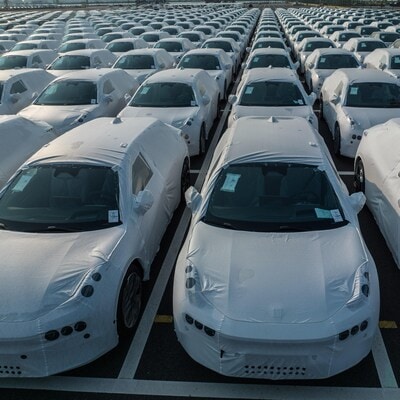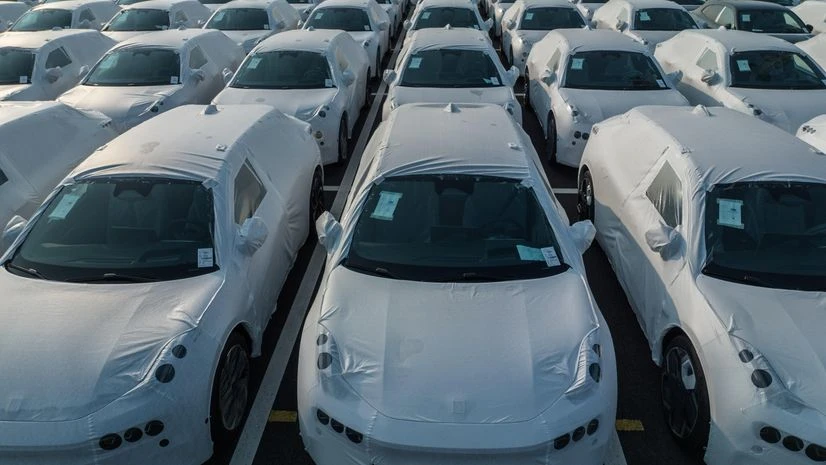Mobility sector in Asian markets to absorb $1.3 trn in green fund by 2030 | Auto

)
Case studies from Mahindra Last Mile Mobility Limited and Battery Smart also found that manufacturing and infrastructure for EVs is increasing across the region Photo: Bloomberg
The mobility sector in emerging markets of South and Southeast Asia is growing so rapidly that it could absorb up to USD 1.3 trillion in green capital by 2030, mirroring China’s phenomenal electric vehicle (EV) growth, according to a report.
The Powering an affordable EV revolution in emerging Asia report, released on Friday — ahead of the Climate Week NYC by investors LeapFrog Investments and Temasek alongside electric mobility companies Mahindra Last Mile Mobility Limited and Battery Smart — showed affordable entry points for electric mobility across the low-income markets of emerging Asia.
An analysis of the lifetime cost of owning an electric vehicle versus fossil-fuel powered vehicles highlighted how electric scooters and electric three-wheelers have hit price tipping points across the region, spiking demand for green mobility even amongst first-time vehicle buyers.
Case studies from Mahindra Last Mile Mobility Limited and Battery Smart also found that manufacturing and infrastructure for EVs is increasing across the region.
According to the report, projected green capital demand for mobility in emerging Asia (USD 1.3 trillion) outstrips capital demand for the energy (USD 400 billion) and food (USD 350 billion) sectors combined.
Mobility emissions represent 10 per cent of total GHG (greenhouse gas) emissions across Asia, but 25 per cent of Europe’s emissions and 30 per cent of the US’, making rapid electrification critical as incomes in emerging Asia rise, it said.
In India, the report said, electric scooters and three-wheelers are currently around USD 40-USD 112 cheaper per year to own than petrol alternatives.
Mahindra estimated that around 70 per cent of electric three-wheeler customers were first-time buyers from low-income backgrounds.
An increasingly efficient network of battery swapping stations, supported by interoperable battery systems across vehicle manufacturers, has dramatically improved re-fuelling infrastructure for EVs.
According to Battery Smart, it takes less than 2 minutes to exchange a battery at one of its 1,100 swapping stations across India.
In India, EVs now account for an estimated 20 per cent of three-wheeler last-mile transportation (passenger and cargo) fleets.
Mahindra estimated that commercial EV drivers generate 20 per cent more income compared to those using CNG/diesel vehicles due to lower operating costs for electric three-wheelers.
The report also said that for women in particular, access to mobility has a magnifying impact on equality of opportunity.
Women in India, Bangladesh and Vietnam are increasingly taking ownership of their safety as they drive independently to their workplaces while cutting down fuel costs through e-scooter ownership.
At the same time, innovators and investors are addressing key constraints to adoption like upfront costs, range anxiety and infrastructure issues.
Steve Howard, Vice Chairman, Sustainability, Temasek, said that the technology improvements and business innovation in emerging Asia’s EV sector, “when coupled with enabling policies and substantial investments, hold tremendous promise for transformative impact at pace and at scale”.
“As we continue to drive electrification, we also remain committed to improving the lives of our customers, many of them micro-entrepreneurs, and supporting India’s journey towards reduced carbon emissions by providing sustainable and cost-effective solutions,” said Suman Mishra, MD and CEO, Mahindra Last Mile Mobility Limited.
Pulkit Khurana, Co-Founder and CEO, Battery Smart, said: “In South and Southeast Asia, we are witnessing phenomenal growth in the EV sector. …the finding that 20 per cent of all last-mile delivery fleets in India are now electric is a clear sign of broader adoption.
“We have identified a USD 1.3 trillion opportunity for the private markets and impact investment community to transform our global transportation future,” said Souleymane Ba, Partner and Co-Head of Climate Investment Strategy, LeapFrog Investments.
(Only the headline and picture of this report may have been reworked by the Business Standard staff; the rest of the content is auto-generated from a syndicated feed.)
First Published: Sep 20 2024 | 1:13 PM IST




